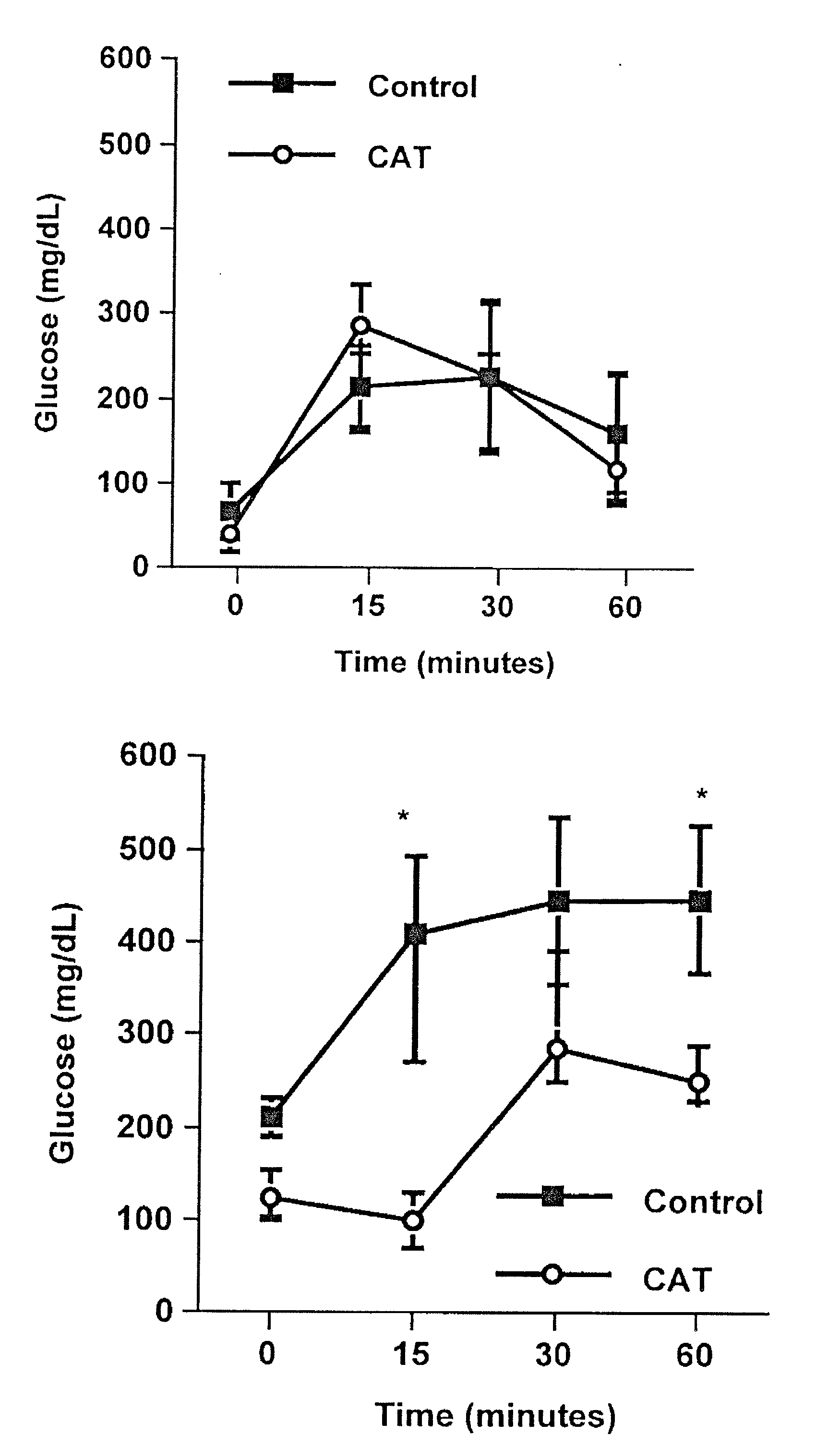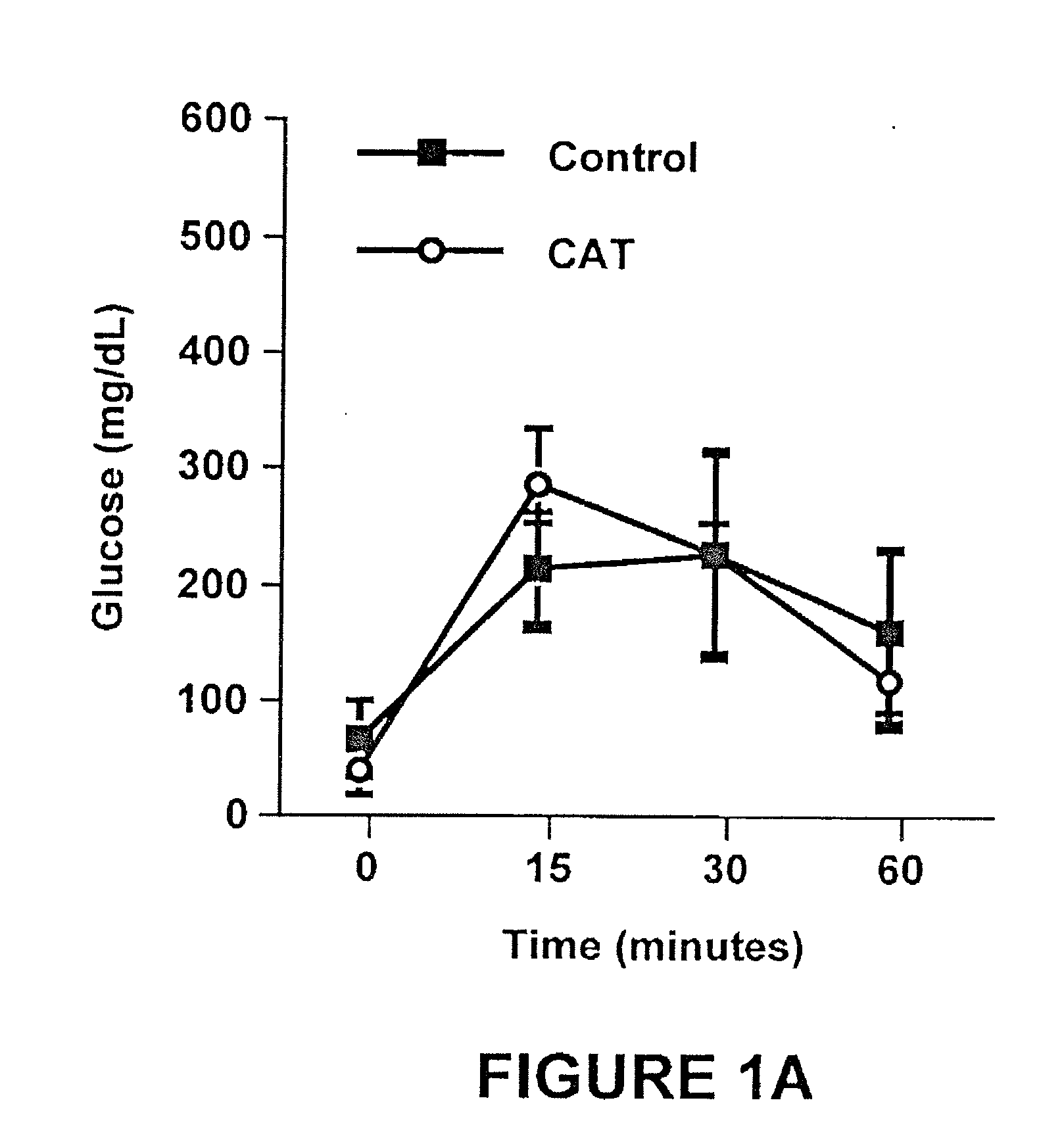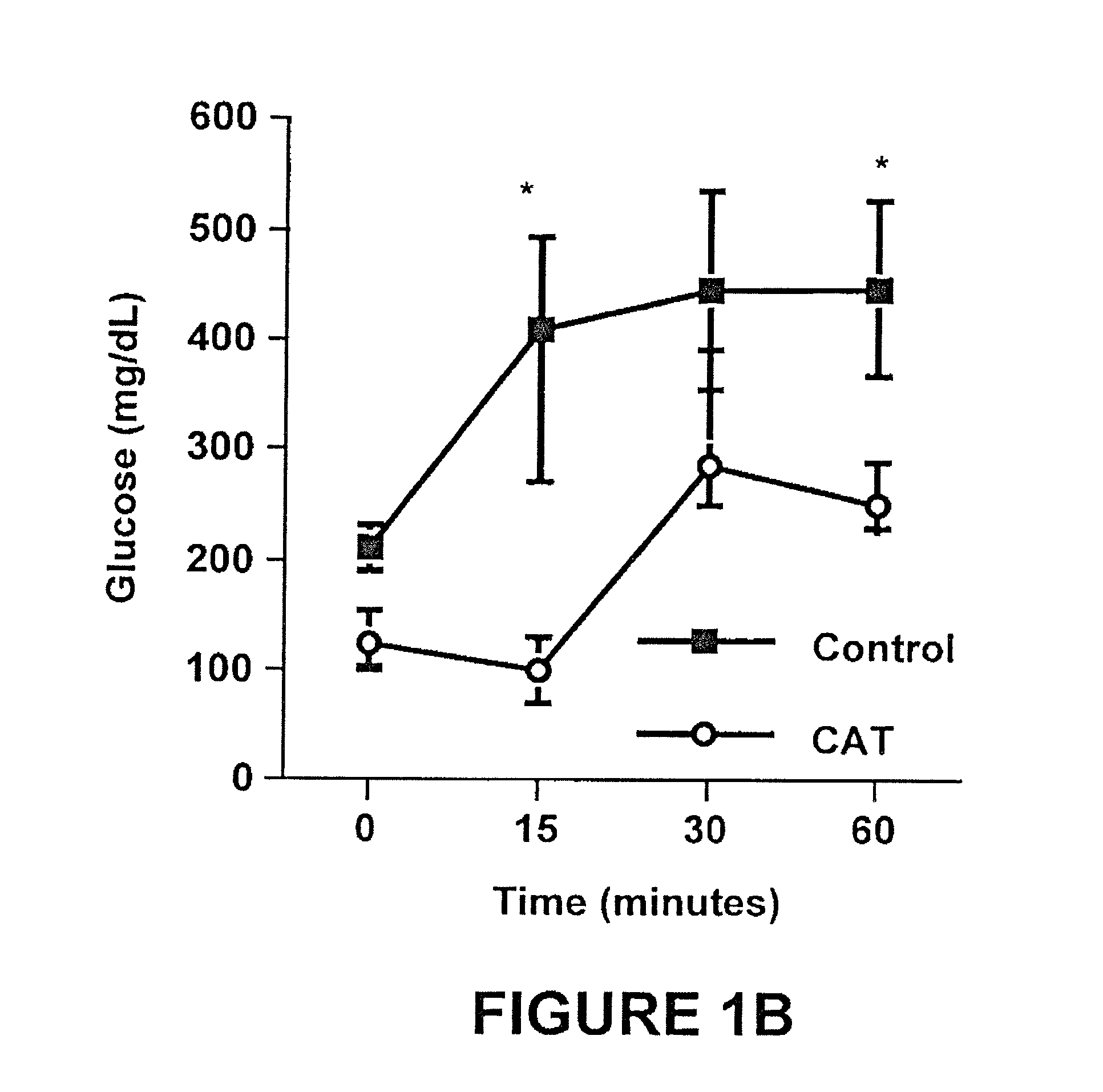Method of using catalpic acid to treat and prevent type 2 diabetes and associated disorders
a technology of catalpic acid and metabolic disorders, applied in the field of using prevent metabolic disorders, can solve the problems of not teaching the use of catalpa oil or catalpic acid to treat or prevent metabolic disorders, method does not teach the use of catalpa oil or catalpic acid in general or in particular, and achieves the effect of preventing metabolic disorders in mammals, and being versatile and efficien
- Summary
- Abstract
- Description
- Claims
- Application Information
AI Technical Summary
Benefits of technology
Problems solved by technology
Method used
Image
Examples
experiment 1
[0068]Experiment 1 was designed to determine the effect of catalpic acid on the development of obesity and type 2 diabetes induced by high fat diets. Specifically, we investigated whether catalpic acid was able to normalize impaired glucose tolerance, prevent hyperglycemia and hyperinsulinemia and attenuate abdominal fat accumulation in mice fed high fat diets.
Methods
[0069]In Western countries the Metabolic Syndrome or Syndrome X (i.e., diabetes, obesity, cardiovascular disease, hypertension and hyperlipidemia) is on a steady rise. The development of nutrition-based therapeutic or preventive interventions using orally active, natural compounds is not only timely but also urgently needed. A total of forty-seven C57BL6 mice were used in experiment 1. Twenty-five mice were fed a control diet and twenty-three mice were fed a diet supplemented with catalpic acid (0.6 g catalpic acid / 100 g food). For the first 32 days of the experiment all diets contained 7% fat, 0.02 total cholesterol, a...
experiment 2
Objective
[0080]The data in Experiment 1 demonstrated that dietary catalpic acid-supplementation for 78 days had a positive effect on glucose tolerance, insulin resistance and abdominal adiposity. The goal of this study was to investigate whether dietary catalpic acid-supplementation for 30 days ameliorated or prevented impaired glucose tolerance, insulin resistance and abdominal adiposity in type 2 diabetic mice.
Methods
[0081]Mice were purchased from Harlan (Indianapolis, Ind.). Following an acclimation period of 5 days on regular rodent chow they were fed purified, high fat diets that represented a modification of the AIN-93G rodent diet in which the nutritional requirements, including those for polyunsaturated fatty acids (PUFA), were met or exceeded. See Table 4.
TABLE 4Composition of the High Fat Diets in Experiment 21.Ingredient (g / kg)Control DietCAT DietCasein232232L-Cystine3.03.0DL-Methionine3.53.5Corn Starch137137Maltodextrin150150Sucrose162.58162.58Cellulose5050Cholesterol1.9...
PUM
| Property | Measurement | Unit |
|---|---|---|
| body weight | aaaaa | aaaaa |
| concentrations | aaaaa | aaaaa |
| concentrations | aaaaa | aaaaa |
Abstract
Description
Claims
Application Information
 Login to View More
Login to View More - R&D
- Intellectual Property
- Life Sciences
- Materials
- Tech Scout
- Unparalleled Data Quality
- Higher Quality Content
- 60% Fewer Hallucinations
Browse by: Latest US Patents, China's latest patents, Technical Efficacy Thesaurus, Application Domain, Technology Topic, Popular Technical Reports.
© 2025 PatSnap. All rights reserved.Legal|Privacy policy|Modern Slavery Act Transparency Statement|Sitemap|About US| Contact US: help@patsnap.com



